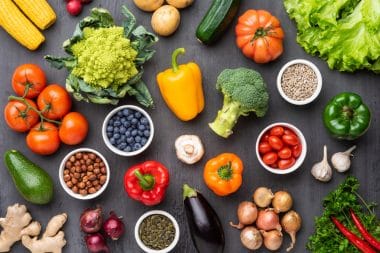Protein powder is constantly becoming a popular supplement not only for athletes but also for regular users. Whether at the gym or on social media, the message remains the same–protein shakes are an important part of an athlete’s life. But one unanswered question is whether these supplements can replace natural proteins. This article aims to cover the benefits of both products, so you can make well-informed choices in future.
Importance Of Proteins
Before proceeding into the nits and grits, it’s significant to know why you need proteins in your body. Is it just another part of your diet not to be ignored? Well, since they’ve been part of your meal intake since time immemorial, not many people understand the real importance of taking in proteins. Whether you buy supplements from NSP Nutrition or eat natural protein sources, the significance is more or less the same.
First, your body needs proteins to develop lean muscle masses. You probably already know this because protein supplements have become synonymous with bodybuilders, but it’s not the only benefit. Your body uses these proteins to repair body tissues and make enzymes as hormones are also products of protein components.
One thing about proteins is they take longer to be broken down by your body. You might be wondering how it’s a benefit for you. When you eat one meal full of proteins, you’ll tend to have a slower digestion process, which means your stomach will feel fuller for longer. The advantage here is you’ll not be forced to take in more calories even before your body uses the available ones. In the long run, it’ll help you reduce body fat, which is a healthy change.
Protein Powder Versus Natural Proteins
As earlier mentioned, you’re likely to enjoy pretty much the same benefits regardless of whether you take in protein powder or natural protein sources. However, it’s not to say they’re entirely the same. So what’s the difference between these two sources of protein components?
Protein powder, for those who don’t know, is a concentrated source of protein made from animal and plant matter. The main raw materials used when manufacturing these supplements include rice, peas, dairy products, and eggs. When purchasing, you might be asked to choose between concentrates, isolates, and hydrolysates. It’s worth noting all types of protein powders vary with content and manufacturing process.
Therefore, it’s safe to say protein powders are artificial products. They’re created from a combination of various raw materials, which makes them more complete in some sense as compared to the natural ones. Perhaps, one area where protein powders are still undefeated is in the provision of amino acids. Apart from having these components in abundance, it also provides them in the required amounts.
As such, you won’t have to worry about an imbalance in the supply because the ratio is already measured for you. All you need to do is take in a given amount of the whole product after a specified period. But before doing this, it’s essential to ask for expert opinions from your instructor or dietitian.
Natural sources of proteins, on the other hand, provide all the required vitamins, minerals, and carbohydrates. Of course, you’ll have to balance the intake by yourself depending on the type of food in question. In addition to lacking essential amino acids, some of these products aren’t ideal for vegetarians.
Can Supplements Substitute Regular Proteins?
Here comes the burning question many people are yet to understand. Can you forego natural protein sources once you’ve consumed a protein shake? The simple answer is no! Of course, protein supplements are quite beneficial, especially to athletes because they provide almost the same advantages as their natural counterparts, but they have a few gaps.
Take note, your body needs proteins but it doesn’t necessarily need protein shakes. As earlier mentioned, whole food contains extra nutrients apart from basic protein components, and they’re also filled with antioxidants, naturally occurring fiber, and phytochemicals. Therefore, doing away with regular proteins means you’re always getting rid of some important nutrients from your diet.
So what’s the best approach? It’s recommended you continue consuming natural protein sources and then use protein powder as a supplement. Of course, these protein shakes come with some amino acids possibly missing in regular sources. Combining the two, therefore, ensures you receive all the necessary nutrients and in good amounts too.
Disadvantages Of Protein Supplements
Although they’ve been endorsed by experts and many medical practitioners, overconsumption of protein shakes might pose a health risk. First, most of them contain artificial ingredients like saccharin, fructose, and aspartame. They also have colors, which are a combination of various chemicals, so if taken in high amounts, your body will start to feel the side effects in the long run.
Some of the effects you’re likely to experience include, nausea, fatigue, and headaches. Although they’re not conclusively proven, there are claims suggesting these supplements may force the kidneys to work a little harder than normal. In the long haul, you’d have an increase in calcium excretion or constant dehydration.
Hence, to avoid these complications, it’d be a good idea to consume supplements in moderation. If you’re not sure about the right amount to take in every day, feel free to contact your physician or a professional trainer if you’re currently attending gym classes.
Conclusion
Like other components of a balanced diet, proteins play a vital role in your body. First, they’re responsible for lean muscle mass, which is why every bodybuilder uses a lot of them. They also help in the healing process of your tissues, not to mention enzymatic and hormonal developments. All these benefits can be enjoyed from both protein powder and natural protein sources.
However, you shouldn’t substitute your regular proteins with these supplements. For one, they both have nutrition gaps needed to be filled. Also, excessive consumption of protein powder could be harmful to your health given some of the chemicals contained in them. Therefore, the best option would be to continue with your regular sources, but add a little bit of protein shakes to supplement your diet.








Reply